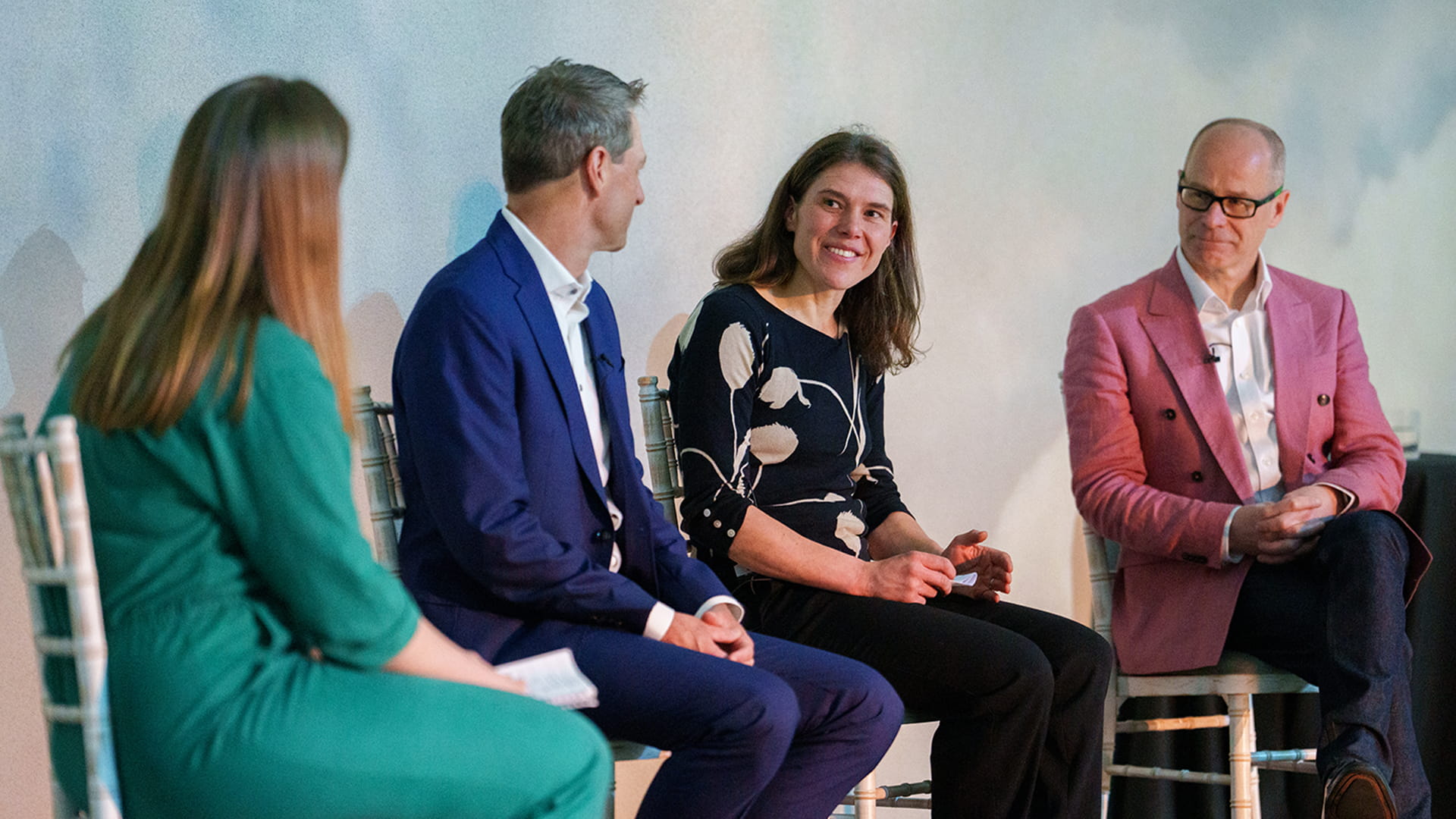“What if we have imagination problems and not resource problems?”
On Marathon Day, air pollution decreases 90 per cent along the course in London. The roads aren’t even closed for 24 hours. And, actually, running a marathon and sustainability have more in common than you might have first thought. Much like completing 26.2 miles, you need to get comfortable with the uncomfortable, and only you can hold yourself accountable.
The world is in crisis. We are experiencing flash floods, storms, wildfires, and record temperatures. Have you ever wondered what the forecast will be for someone living in 2224? Phoebe Tickell, who helps facilitate imaginative responses to solving issues such as the climate crisis, posed this question at an evening hosted by London Marathon Events (LME).
She said: “We think the problem is about not having enough budget, not enough tools, but we have everything we need. What if we have imagination problems and not resource problems?”
LME is calling on other event companies to consider their environmental impact and for innovative ways of thinking so that we can protect the planet. The world is already becoming inhospitable for certain species, and if we don’t act, it will be fatal for future generations.
Hugh Brasher, TCS London Marathon Event Director, and Phoebe were joined by ultramarathon runner Jasmin Paris and Bill Quinn, technology forecaster at TCS, to talk about how we can start protecting the planet today.
Up for the challenge? Here’s how our individual actions can collectively start this journey.
Keep your inner cynic in check
You might think I’m just one person. What difference can I make? Or is my input too late as the earth creeps closer to warming two degrees?
Phoebe says: “The inner cynic. The inner critic. These are the kinds of voices we are going to have to overcome to achieve the impossible.”
It’s not always worth listening to those who say it can’t be done. When it comes to achieving the impossible, Jasmin Paris is your woman.
Not only did she become the first woman to complete the ultra-endurance 100-mile Barkley Marathons this year, a race said to be impossible for a woman to finish, but she is also the first woman to win the 268-mile Montane Spine Race. Oh, and she smashed the course record for both genders by twelve hours.
She says: “Lots of people said it was impossible for a woman to finish [the Barkley Marathons], and that made it even more exciting to try.
“Always approach these things with an open mind and see what you can achieve.
“A lot of people when they talk about making changes say it’s too big a challenge, but unless you try, you never know.”
Get comfortable with the uncomfortable
Phoebe shares a stark fact that if we don’t slow down our plastic production, scientists predict there will be more plastic than fish by weight in the ocean by 2050.
Stats like this might be overwhelming or difficult to comprehend, but Hugh says we need to get comfortable with the uncomfortable
“Without being uncomfortable we achieve nothing. Through being uncomfortable, thinking differently and trying things for the first time we can genuinely make change,” he says.
“We can’t wait for the government, they are only looking at the short term, but if through our organisations and individual actions we start bringing people together we can make the changes necessary.”
We might be stubborn, but we are highly adaptable
The biggest upheaval the world faced during the last decade was the Covid-19 pandemic as we all became over-familiar with the term 'unprecedented times’. But Bill says we showed how adaptable we can be when faced with a crisis.
“We are a pretty stubborn species, but when change is forced upon us we are amazingly adaptable if you look at wars, famines and pandemics. Our ability to adapt is inspiring and that makes me hopeful because I think we are getting to this inflection point.”
Innovation comes when we are faced with a unique set of circumstances and we have a wealth of cutting-edge tech. Bill is interested in how the TCS London Marathon could become a potential testing ground.
“There’s a lot of work being done to create tiles that generate energy from footfall, so what if the London Marathon becomes a proving bed for how much energy can be generated when thousands of runners run across those tiles?”
Consider what simple steps you can take
When she’s not taking on endurance events, Jasmin is advocating for change with the Green Runners, a running community that is calling for a healthier planet.
She co-founded the community and says its four pillars are: how you move, how you kit-up, how you fuel and how you speak out.
Looking through these lenses, you can consider your individual actions such as which events you choose and where they are in the world, but also the kit you train in and whether you are repairing it.
For Jasmin, this means not being sponsored: “I stopped being sponsored because I wanted to use my voice to speak out and I didn’t want to promote buying new kit.”
It might start with an individual action, but Jasmin says a community can create lasting change: “It’s building this sense of collective movement in a greener direction.”
She also says we need to appreciate what we are protecting: “I think giving people access to the natural world and open spaces and wilderness and letting them learn to love it is one of the keys to the future so they know what they are trying to protect.”
